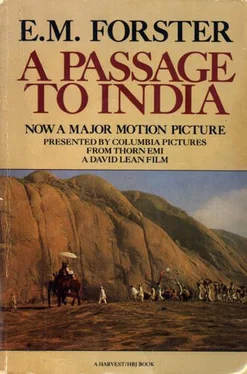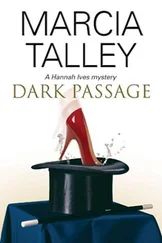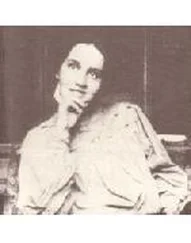Her son couldn't escort her to Bombay, for the local situation continued acute, and all officials had to remain at their posts. Antony couldn't come either, in case he never returned to give his evidence. So she travelled with no one who could remind her of the past. This was a relief. The heat had drawn back a little before its next advance, and the journey was not unpleasant. As she left Chandrapore the moon, full again, shone over the Ganges and touched the shrinking channels into threads of silver, then veered and looked into her window. The swift and comfortable mail-train slid with her through the night, and all the next day she was rushing through Central India, through landscapes that were baked and bleached but had not the hopeless melancholy of the plain. She watched the indestructible life of man and his changing faces, and the houses he has built for himself and God, and they appeared to her not in terms of her own trouble but as things to see. There was, for instance, a place called Asirgarh which she passed at sunset and identified on a map—an enormous fortress among wooded hills. No one had ever mentioned Asirgarh to her, but it had huge and noble bastions and to the right of them was a mosque. She forgot it. Ten minutes later, Asirgarh reappeared. The mosque was to the left of the bastions now. The train in its descent through the Vindyas had described a semicircle round Asirgarh. 'What could she connect it with except its own name? Nothing; she knew no one who lived there. But it had looked at her twice and seemed to say: " I do not vanish." She woke in the middle of the night with a start, for the train was falling over the western cliff. Moonlit pinnacles rushed up at her like the fringes of a sea; then a brief episode of plain, the real sea, and the soupy dawn of Bombay. "I have not seen the right places," she thought, as she saw embayed in the platforms of the Victoria Terminus the end of the rails that had carried her over a continent and could never carry her back. She would never visit Asirgarh or the other untouched places; neither Delhi nor Agra nor the Rajputana cities nor Kashmir, nor the obscurer marvels that had sometimes shone through men's speech: the bilingual rock of Girnar, the statue of Shri Belgola, the ruins of Mandu and Hampi, temples of Khajraha, gardens of Shalimar. As she drove through the huge city which the West has built and abandoned with a gesture of despair, she longed to stop, though it was only Bombay, and disentangle the hundred Indias that passed each other in its streets. The feet of the horses moved her on, and presently the boat sailed and thousands of coconut palms appeared all round the anchorage and climbed the hills to wave her farewell. "So you thought an echo was India; you took the Marabar caves as final?" they laughed. "What have we in common with them, or they with Asirgarh? Good-bye!" Then the steamer rounded Colaba, the continent swung about, the cliff of the Ghats melted into the haze of a tropic sea. Lady Mellanby turned up and advised her not to stand in the heat: "We are safely out of the frying-pan," said Lady Mellanby, "it will never do to fall into the fire."
Making sudden changes of gear, the heat accelerated its advance after Mrs. Moore's departure until existence had to be endured and crime punished with the thermometer at a hundred and twelve. Electric fans hummed and spat, water splashed on to screens, ice clinked, and outside these defences, between a greyish sky and a yellowish earth, clouds of dust moved hesitatingly. In Europe life retreats out of the cold, and exquisite fireside myths have resulted—Balder, Persephone—but here the retreat is from the source of life, the treacherous sun, and no poetry adorns it because disillusionment cannot be beautiful. Men yearn for poetry though they may not confess it; they desire that joy shall be graceful and sorrow august and infinity have a form, and India fails to accommodate them. The annual helter-skelter of April, when irritability and lust spread like a canker, is one of her comments on the orderly hopes of humanity. Fish manage better; fish, as the tanks dry, wriggle into the mud and wait for the rains to uncake them. But men try to be harmonious all the year round, and the results are occasionally disastrous. The triumphant machine of civilization may suddenly hitch and be immobilized into a car of stone, and at such moments the destiny of the English seems to resemble their predecessors', who also entered the country with intent to refashion it, but were in the end worked into its pattern and covered with its dust.
Adela, after years of intellectualism, had resumed her morning kneel to Christianity. There seemed no harm in it, it was the shortest and easiest cut to the unseen, and she could tack her troubles on to it. Just as the Hindu clerks asked Lakshmi for an increase in pay, so did she implore Jehovah for a favourable verdict. God who saves the King will surely support the police. Her deity returned a consoling reply, but the touch of her hands on her face started prickly heat, and she seemed to swallow and expectorate the same insipid clot of air that had weighed on her lungs all the night. Also the voice of Mrs. Turton disturbed her. "Are you ready, young lady?" it pealed from the next room.
"Half a minute," she murmured. The Turtons had received her after Mrs. Moore left. Their kindness was incredible, but it was her position not her character that moved them; she was the English girl who had had the terrible experience, and for whom too much could not be done. No one, except Ronny, had any idea of what passed in her mind, and he only dimly, for where there is officialism every human relationship suffers. In her sadness she said to him, "I bring you nothing but trouble; I was right on the Maidan, we had better just be friends," but he protested, for the more she suffered the more highly he valued her. Did she love him? This question was somehow draggled up with the Marabar, it had been in her mind as she entered the fatal cave. Was she capable of loving anyone?
"Miss Quested, Adela, what d'ye call yourself, it's half-past seven; we ought to think of starting for that Court when you feel inclined."
"She's saying her prayers," came the Collector's voice.
"Sorry, my dear; take your time… Was your chota hazri all right?"
"I can't eat; might I have a little brandy?" she asked, deserting Jehovah.
When it was brought, she shuddered, and said she was ready to go.
"Drink it up; not a bad notion, a peg."
"I don't think it'll really help me, Burra Sahib."
"You sent brandy down to the Court, didn't you, Mary?"
"I should think I did, champagne too."
"I'll thank you this evening, I'm all to pieces now," said the girl, forming each syllable carefully as if her trouble would diminish if it were accurately defined. She was afraid of reticence, in case something that she herself did not perceive took shape beneath it, and she had rehearsed with Mr. McBryde in an odd, mincing way her terrible adventure in the cave, how the man had never actually touched her but dragged her about, and so on. Her aim this morning was to announce, meticulously, that the strain was appalling, and she would probably break down under Mr. Amritrao's cross-examination and disgrace her friends. "My echo has come back again badly," she told them.
"How about aspirin?"
"It is not a headache, it is an echo."
Unable to dispel the buzzing in her ears, Major Callendar had diagnosed it as a fancy, which must not be encouraged. So the Turtons changed the subject. The cool little lick of the breeze was passing over the earth, dividing night from day; it would fail in ten minutes, but they might profit by it for their drive down into the city.
"I am sure to break down," she repeated.
"You won't," said the Collector, his voice full of tenderness.
Читать дальше












